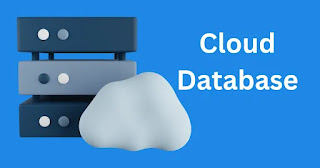Learn about cloud databases, a type of database that is hosted on a cloud computing platform and accessed over the internet. Discover the benefits of cloud databases, including scalability, flexibility, and security features. Find out about the potential risks and how to protect your data. Read our blog for expert insights and tips on cloud databases.
What Are Cloud Databases and How Can They Benefit Your Business? | Blog
Cloud computing has revolutionized the way we store and access data. Cloud databases are a type of database that is hosted by a third-party provider and accessed over the internet. In this article, we will explore what cloud databases are and how they can benefit your business.
A cloud database is a type of database that is hosted on a cloud computing platform. This platform is accessed over the internet, and the database can be accessed from anywhere in the world with an internet connection. Cloud databases can be used to store and manage large amounts of data, and they can be scaled up or down to meet your business's changing needs.
One of the main benefits of cloud databases is their scalability. Traditional databases are typically hosted on a single server, which limits their scalability. However, cloud databases can be scaled up or down as needed, depending on your business's needs. This means that you can easily add more resources to your database when you need to, without having to worry about hardware limitations.
Another benefit of cloud databases is their flexibility. Cloud databases can be accessed from anywhere in the world, making them an ideal solution for businesses with employees or customers in multiple locations. They can also be easily integrated with other cloud-based services, such as web applications and data analytics tools.
Cloud databases also offer a range of security benefits. Cloud providers typically offer advanced security features, such as encryption, firewalls, and intrusion detection, to protect your data from cyber threats. They also offer backup and disaster recovery services, ensuring that your data is always safe and accessible, even in the event of a hardware failure or natural disaster.
However, it is important to be aware of the potential risks of cloud databases. One of the main concerns is data security, particularly when sensitive data is being stored or transmitted over the internet. You need to take appropriate measures to protect your data and ensure compliance with relevant data protection regulations.
In conclusion, cloud databases are a powerful technology that can benefit your business in many ways. They offer scalability, flexibility, and security benefits, and they can be easily integrated with other cloud-based services. However, it is important to be aware of the potential risks and take appropriate measures to ensure the security and protection of your data. With the right precautions in place, cloud databases can help your business thrive in the digital age.
Keywords: cloud databases, cloud computing, scalability, flexibility, security, backup and disaster recovery, data protection, compliance, expert insights, tips.

